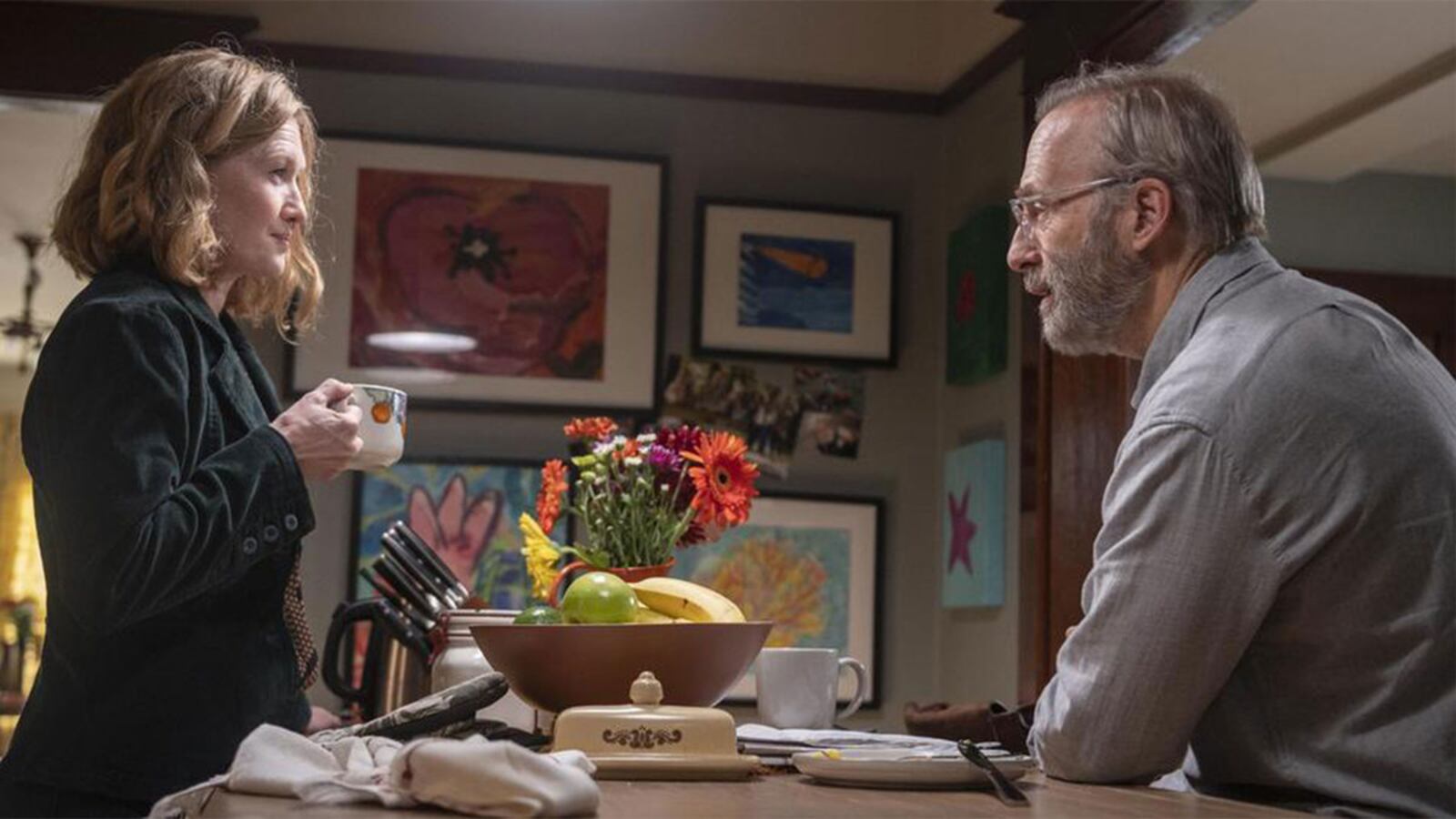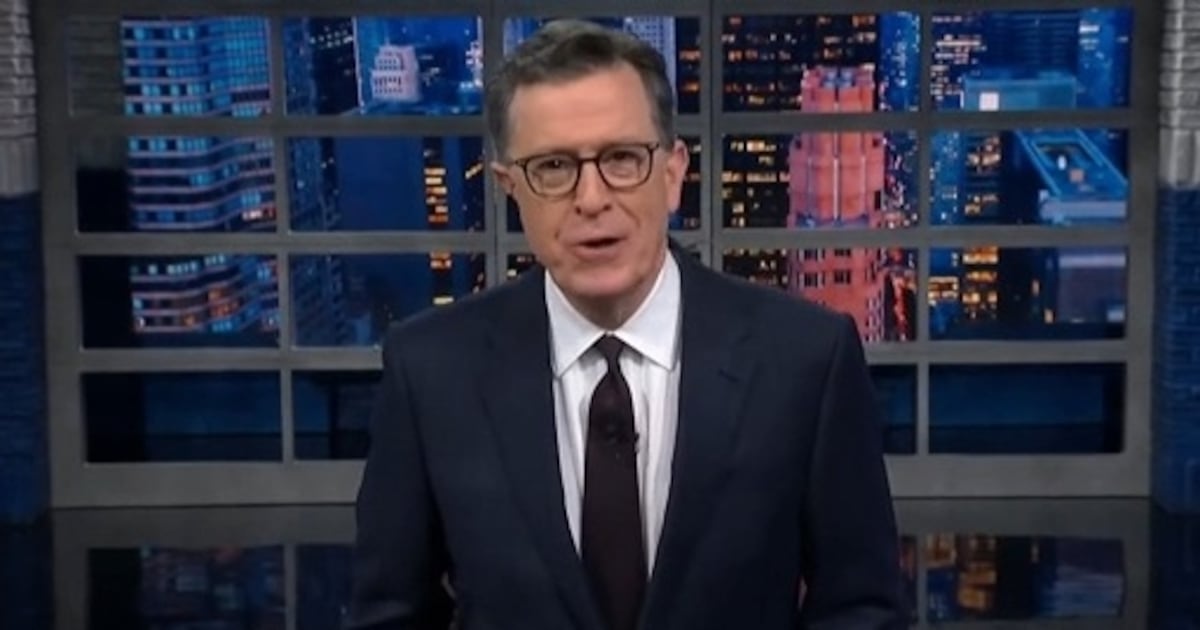Bob Odenkirk gave arguably the finest television performance of the past decade on Better Call Saul, transforming small-time attorney Jimmy McGill (aka Saul Goodman) from an entertainingly sleazy Breaking Bad supporting player into a complex protagonist caught between his better and lesser angels. It was a turn for the ages, and confirmed that Odenkirk, who first hit it big in sketch comedy alongside David Cross with Mr. Show with Bob and David, wasn’t just a talented funnyman; he was a dramatic actor of the highest caliber, one capable of infusing morally tangled-up characters with endearing bitterness, desperation, sorrow, regret, and wit.
Jimmy McGill was an unqualified triumph, which also makes him a tough act to follow. Now, in the wake of Better Call Saul’s superb conclusion, Odenkirk attempts to do just that—on AMC, the same network as his last two shows – with Lucky Hank. An hour-long dramedy, the series just premiered at the SXSW Festival, ahead of its Mar. 19 debut on AMC. It stars the leading man as William Henry “Hank” Devereaux, Jr., an English professor and department chair at Pennsylvania’s Railton College. Sporting a salt-and-pepper beard, nondescript spectacles and the sorts of collared-shirts-with-a-jacket attire that’s the uniform of so many in his profession, Hank looks like your average educator. Unsurprisingly, he’s anything but.
Adapted from Richard Russo’s novel Straight Man by Paul Lieberstein (aka Toby from The Office) and Aaron Zelman—along with executive-producer Bobby Farrelly, who helms the eight-episode season’s initial two hours—Lucky Hank immediately establishes Hank as an outlier when, during yet another dreary class, he’s incapable of uttering an engaged word to his students, including Bartow (Jackson Kelly), who’s just read aloud his latest underwhelming paper. When pressed to say something, Hank lets loose, slamming Bartow’s work as subpar and the university itself as “mediocrity’s capital.” In that brutal assessment, he spares no one, from students to faculty members to himself, admitting that even if Bartow did have a flicker of inspiration (which he doesn’t think is true), he wouldn’t be able to bring it out of the kid.
Unsurprisingly, that outburst doesn’t go over well with the faculty dean (Oscar Nuñez) nor with colleagues, most notably Gracie DuBois (Suzanne Cryer), a poetry expert who defends her record and reputation and then calls for a vote to oust Hank from his seat at the head of the department table—something that’s acceded to by fellow professors Paul (Cedric Yarbrough), Emma (Shannon DeVido), Teddy (Arthur Keng), and June (Alvina August). Hank’s wife Lily (Mireille Enos) likewise isn’t thrilled about his blunt-force honesty, and as a local high school vice principal, she takes a polar-opposite tack when it comes to conflict resolution, offering an at-odds mother and teacher chocolates in order to ameliorate an incident caused by the parent’s son. That too doesn’t turn out to be wholly successful, though, suggesting that Lucky Hank isn’t quite ready to settle on the best plan of teacher-student attack.
The source of Hank’s discontent is his father, a famed critic whose retirement is front-page national news, and who had little to do with his son during the past few decades. Hank’s resentment is compounded by the fact that his debut novel was, to date, his last, and that he’s crippled by writer’s block—a malady that stems from his insecurities. He’s not the only individual with paternal issues in Lucky Hank, and if that sounds like a familiar hang-up around which to pivot a story, Odenkirk nonetheless embodies his professor as a uniquely mordant midlife crisis-suffering pain in the ass who—for self-preservation purposes—has cocooned himself in misanthropic despair and fatalism. He’s a guy who proclaims that nothing matters, and burns bridges to back up his stance, as a means of distracting attention away from the reality that he does care—at least about his own shortcomings.
Hank has his own parental headaches courtesy of daughter Julie (Olivia Scott Welch) and her boyfriend Russell (Daniel Doheny), who seem to think that Hank and Lily are benefactors upon whom they can rely rather than getting practical jobs. Hank’s status as a frustrated father figure additionally extends to his officemates. In the funniest moment in Lucky Hank’s first two episodes (which were all that critics received), he is ousted as department chair, only to then be reinstated to the post when he wins the follow-up vote to choose his replacement. Whether Hank’s coworkers are interesting or amusing enough to sustain the show’s ensemble format, however, remains to be seen; while Diedrich Bader is an auspicious wildcard as Hank’s friend and racquetball partner Tony, Silicon Valley vet Cryer’s grating Gracie receives the most attention, which is not promising.
Hank and Enos’ rapport is far sturdier, as Hank and Lily feel like a married couple whose relationship’s nooks and crannies are filled with all sorts of frustrations and connections. The pair prove a solid bedrock foundation upon which to build a series, although at least at outset, Lucky Hank is a tad light on actual laughs or gripping incidents. Odenkirk’s inner-monologue narration sets an aptly dry, cynical tone, yet there’s nothing particularly exciting about his campus travails, which, in the second installment concern the arrival of accomplished author George Saunders (Brian Huskey), a former friend who went on to have the success—and relationship with Hank Sr.—that Hank always coveted but never attained.
As with countless modern serialized series, Lucky Hank is playing a long game, so judging it on the basis of its opening chapters—whose effort is largely spent introducing its collection of characters and the dynamics that govern their multifaceted relationships—is inherently difficult. Still, there’s reason for cautious optimism, insofar as later episodes are destined to see Hank taking even more extreme action as a way of coping (or not) with his underlying problems. To make things really tick, Lieberstein and Zelman will have to find a way to fashion the men and women around their star as more than bland placeholders. However, as Better Call Saul demonstrated, if anyone can elevate a tale about a complicated jerk at war with the world (and himself) into must-see TV, it’s Odenkirk.
Liked this review? Sign up to get our weekly See Skip newsletter every Tuesday and find out what new shows and movies are worth watching, and which aren’t.






